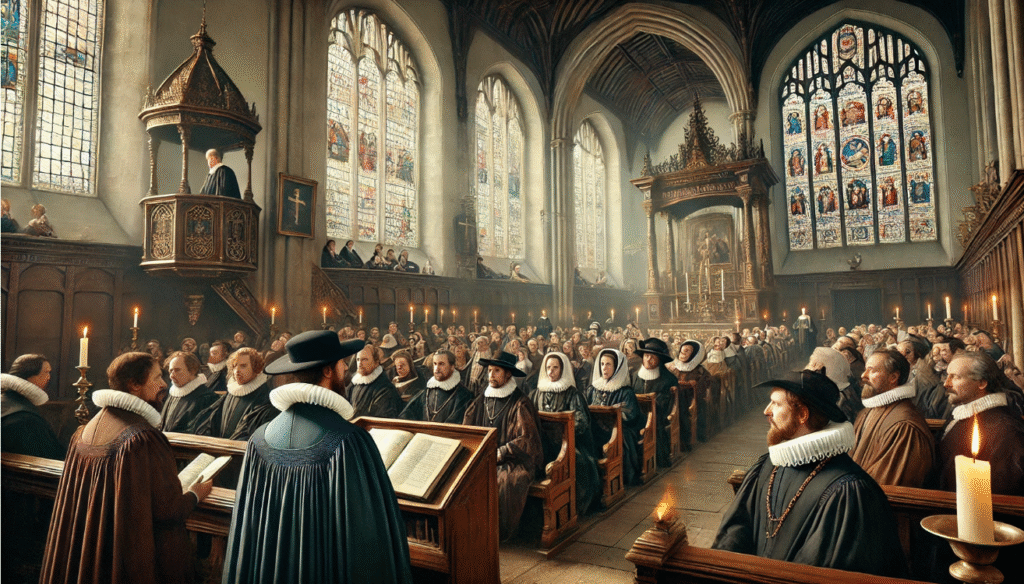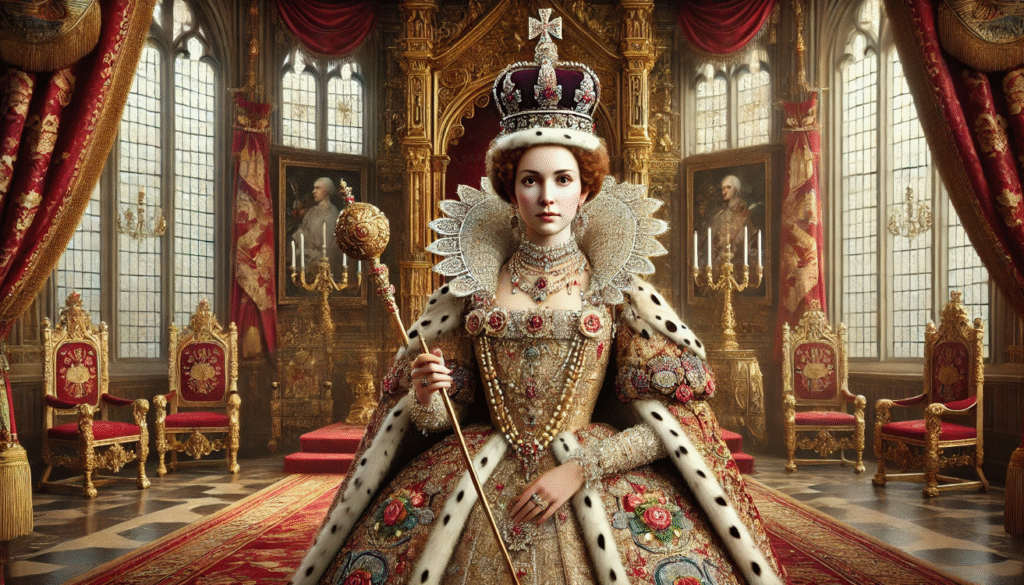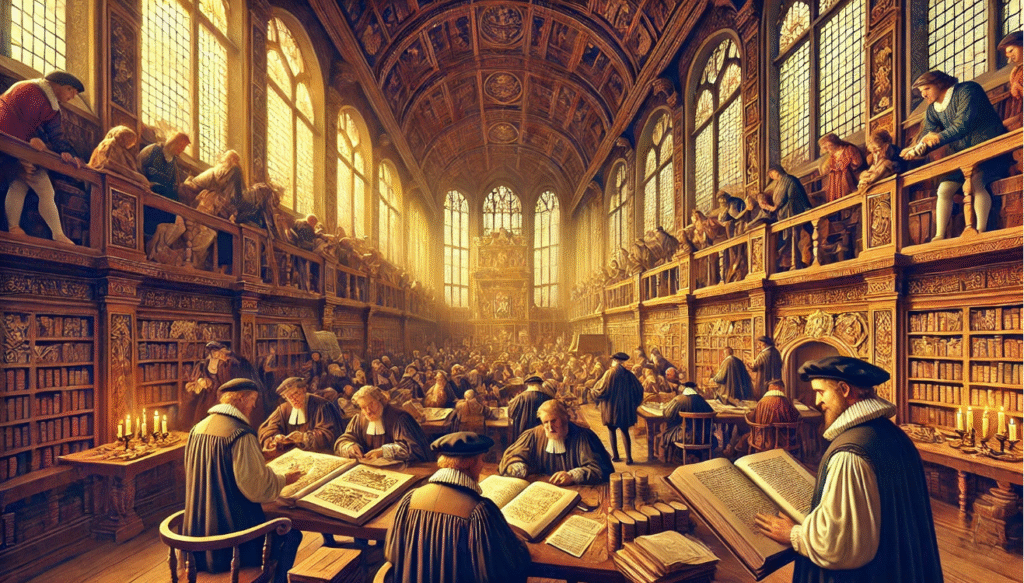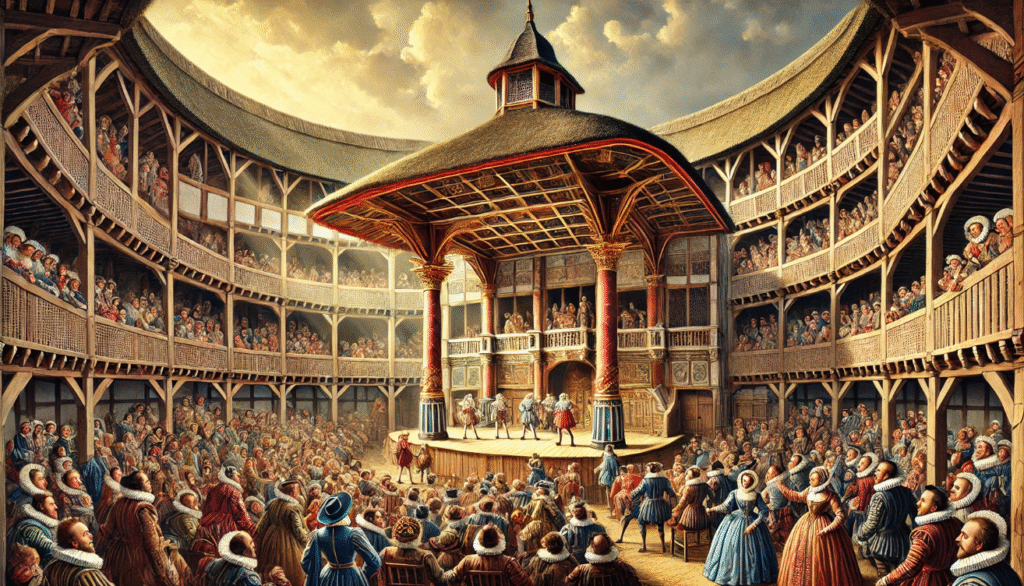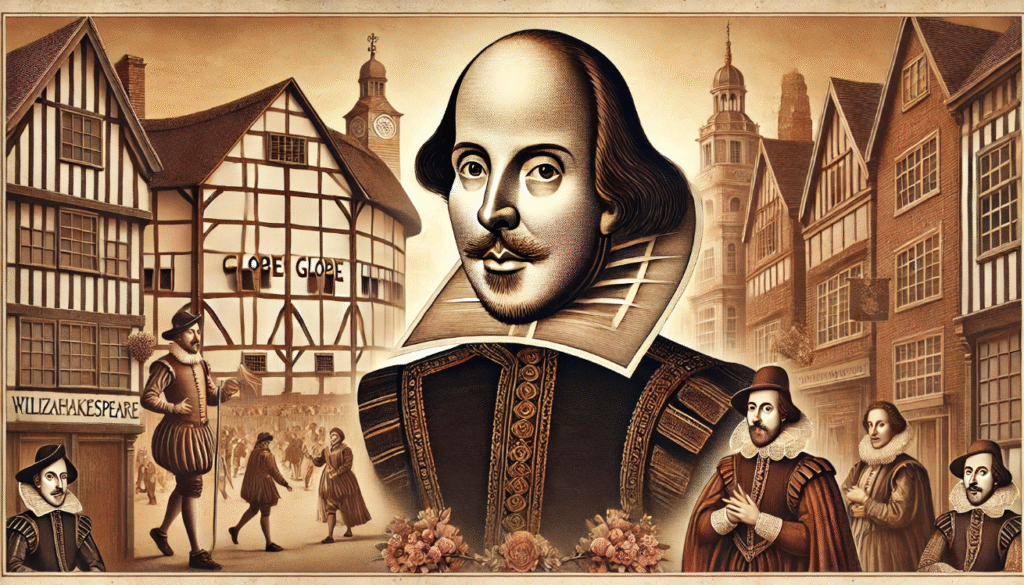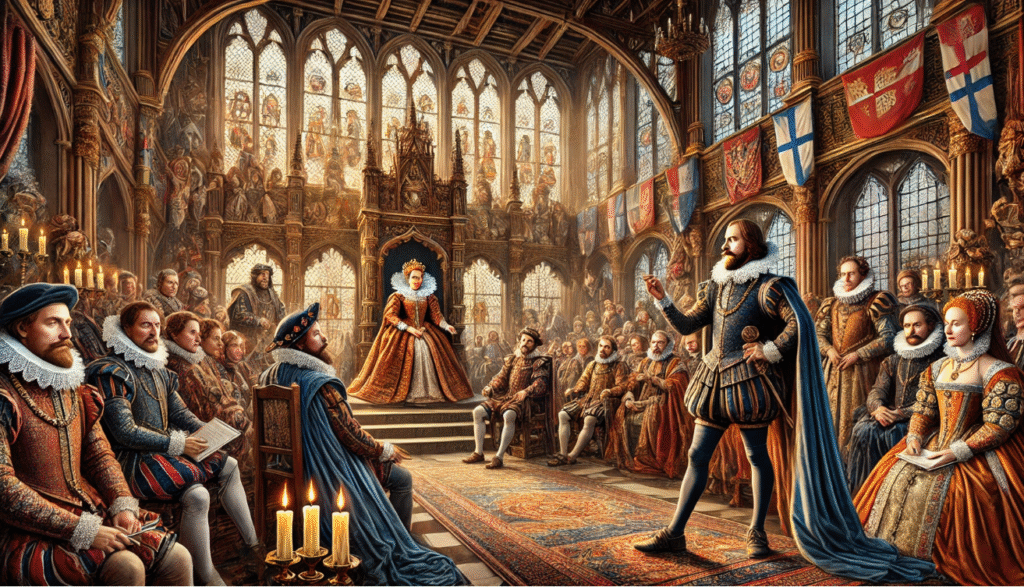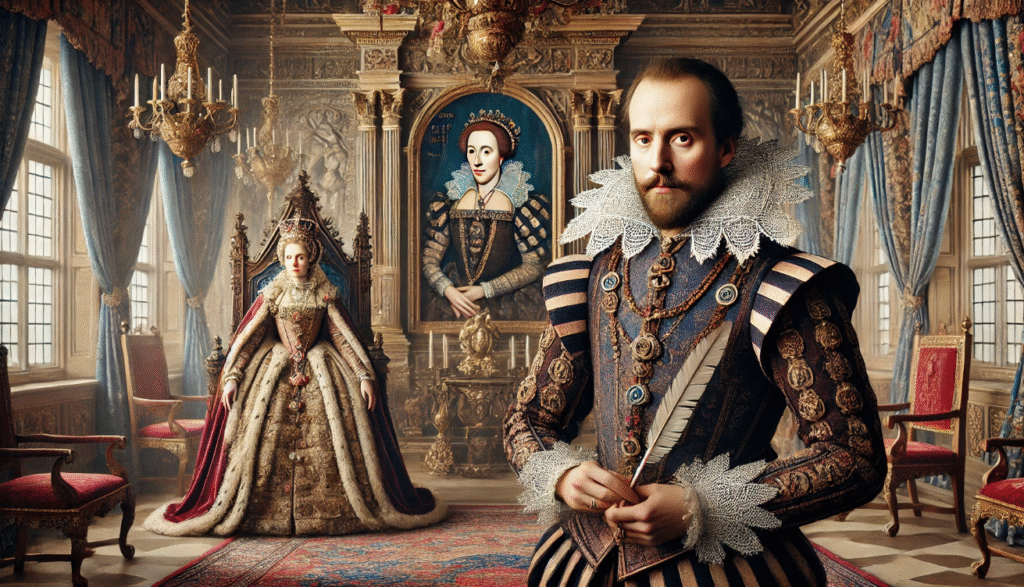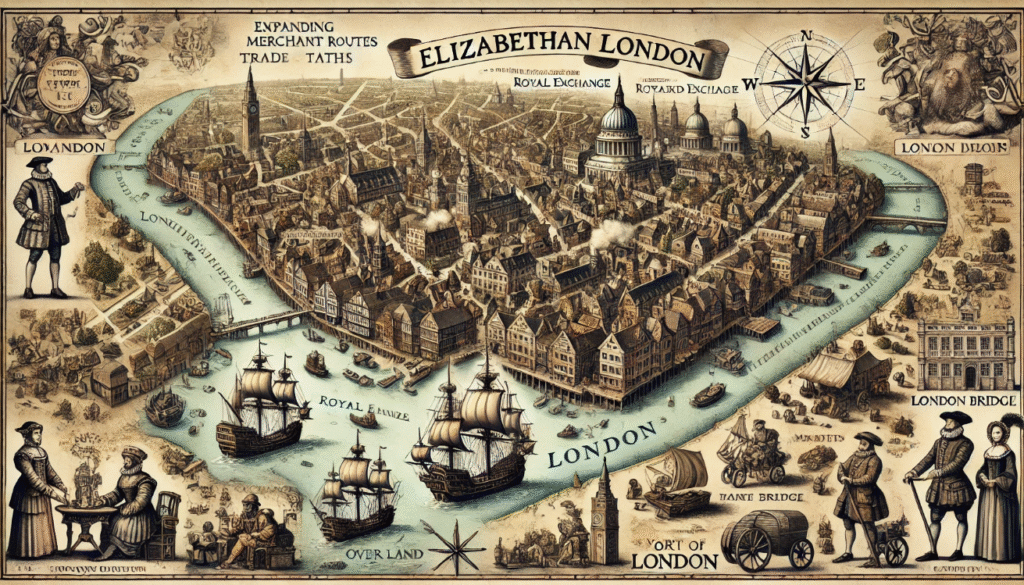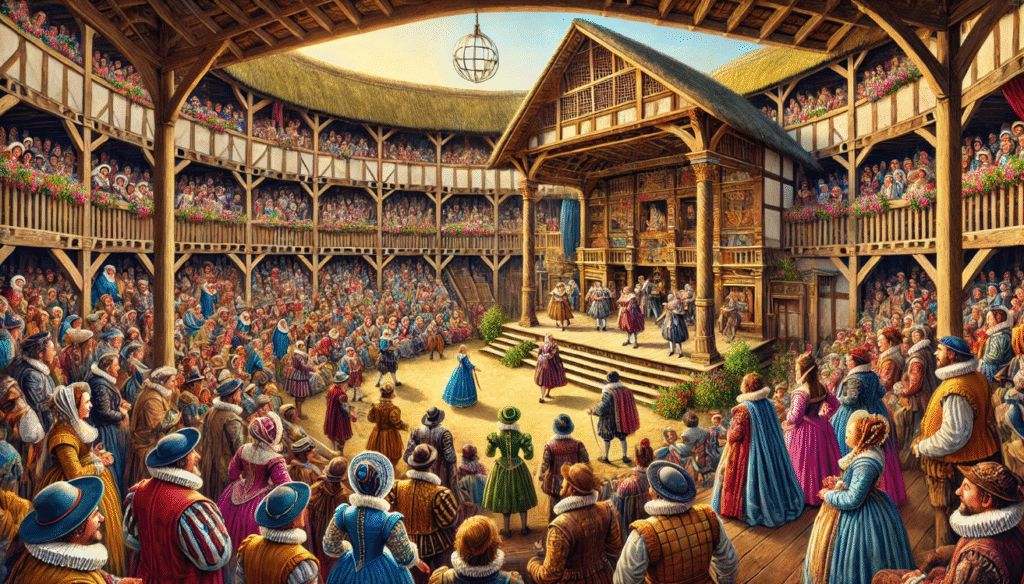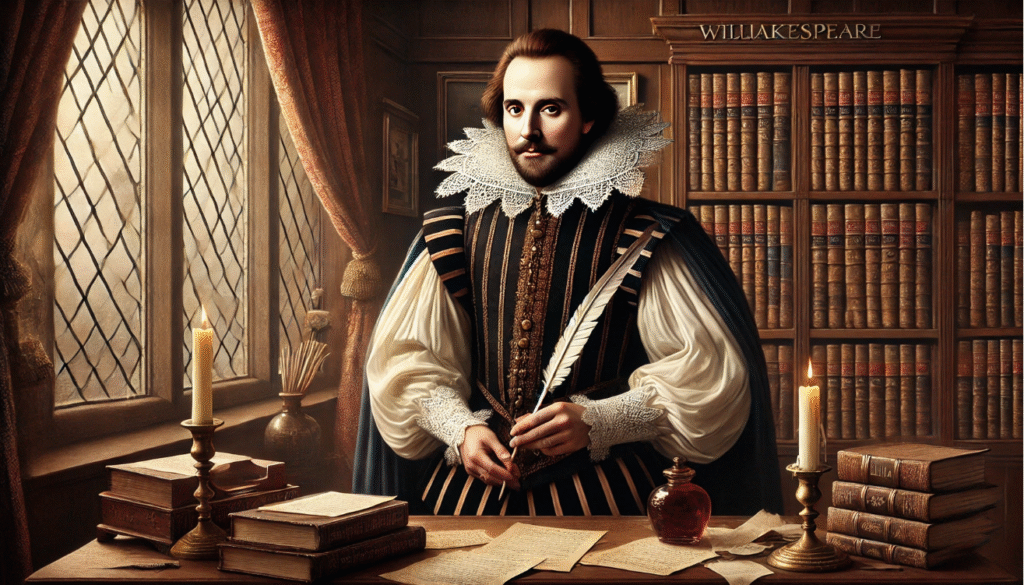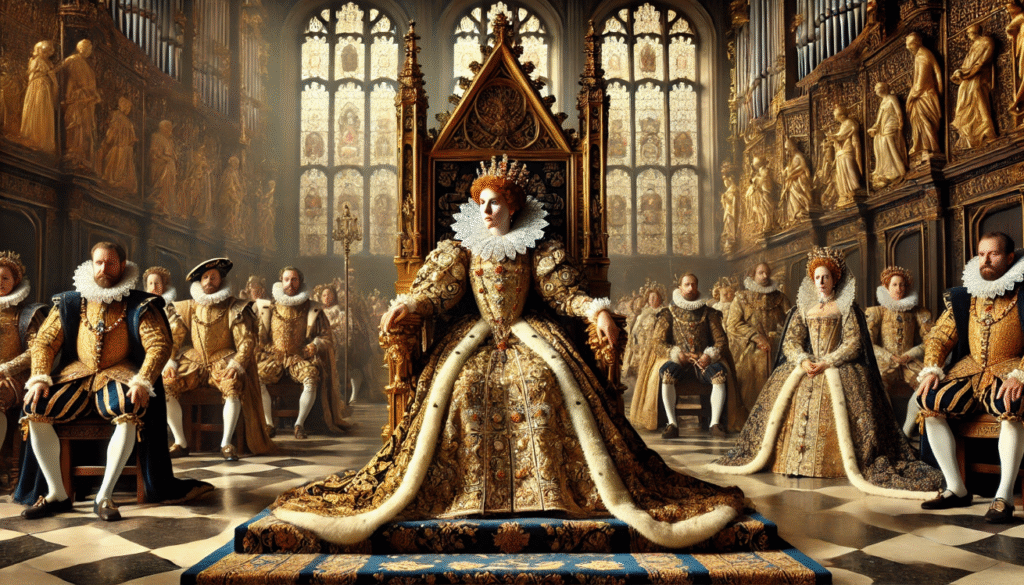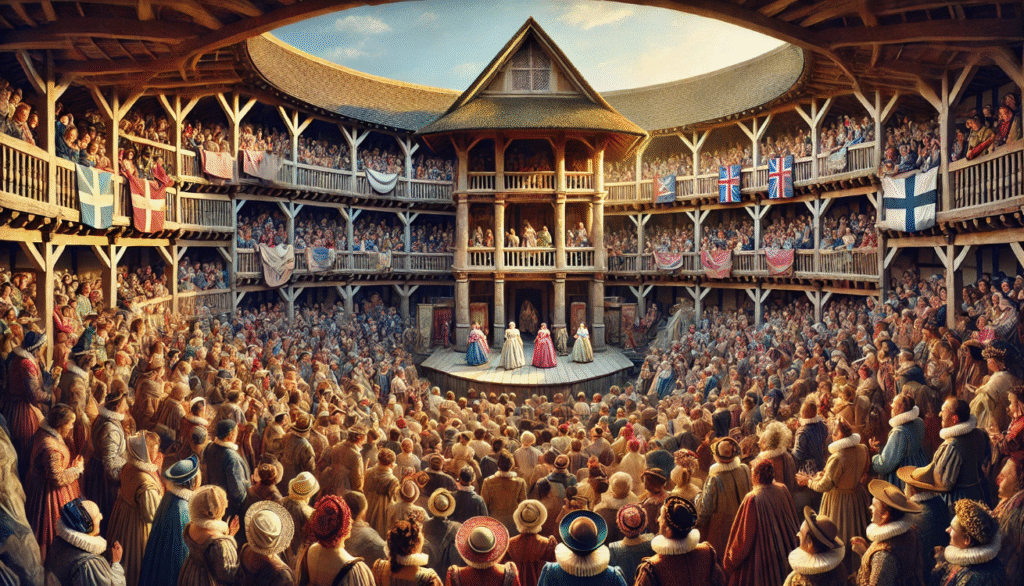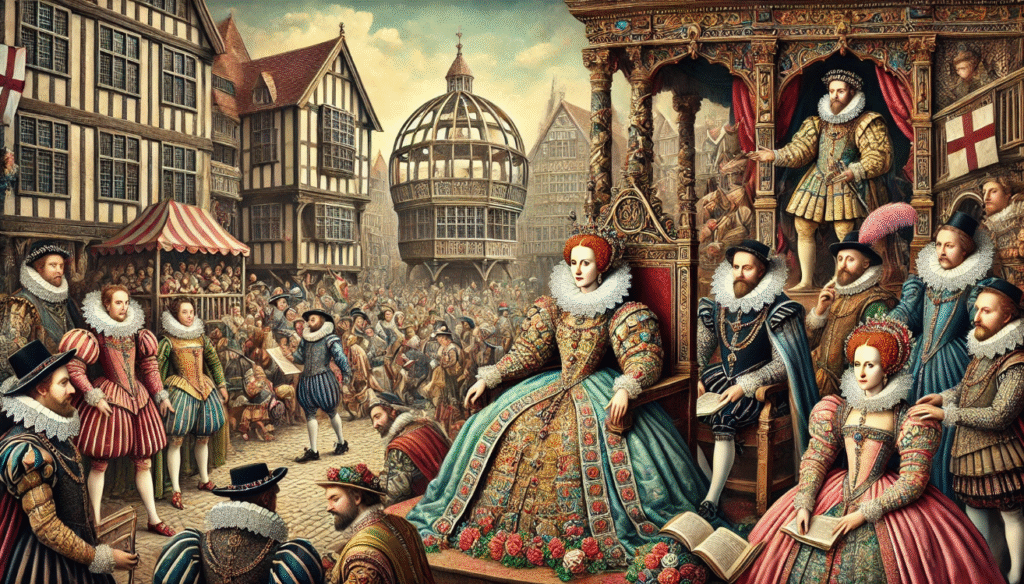Did you know that religion played a central role in the daily lives of people in Elizabethan England? It was a time of great religious upheaval and transformation, Religious influences on Shakespeare with the Church of England being established as the official religion, but Catholicism still holding sway in many parts of the country. In this context, religion had a profound impact on the life and work of William Shakespeare. As a devout Catholic in a Protestant-dominated society, Shakespeare had to navigate the complexities of religious identity and belief. His personal experiences with religion undoubtedly influenced his writings, as themes of sin, redemption, and divine justice are recurrent in his plays and sonnets. Shakespeare’s characters often grapple with moral and spiritual dilemmas, reflecting the religious tensions of his time.
During Shakespeare’s time, England was going through religious upheaval due to the Protestant Reformation. The tension between Catholics and Protestants was a major influence on Shakespeare’s life and work. This religious context is reflected in many of his plays, in which themes of faith, morality, and the struggle between good and evil are prevalent. Shakespeare’s writings often grapple with the complexities of religious belief and the impact of religious conflict on society, making his work a reflection of the religious tensions of his time.
The Religious Context of Elizabethan England
The Elizabethan Religious Climate:
England’s transition from Catholicism to Protestantism under Henry VIII and Elizabeth I was a significant and tumultuous period in the country’s history. Henry VIII’s break from the Catholic Church and establishment of the Church of England had far-reaching implications for society, politics, and culture. This transition led to religious strife and conflict, as individuals and communities grappled with the changes in religious doctrine and practice. The impact of this religious upheaval on society was profound, as it led to widespread social and political unrest. The dissolution of the monasteries and the redistribution of their wealth disrupted the traditional social and economic structure, leading to widespread poverty and hardship for many.
Religious Expectations and Censorship:
Playwrights, including Shakespeare, had to navigate religious sensitivities during their time by being mindful of the political and religious climate in which they were writing. In Shakespeare’s time, England was going through religious turmoil as the country transitioned from Catholicism to Protestantism. Playwrights had to be cautious not to offend the ruling monarch or the church authorities, as they could face severe consequences for their work. This often meant that they had to carefully portray religious themes and characters in their plays in a way that did not directly challenge the religious establishment. Additionally, playwrights had to be aware of the audience’s religious beliefs and sensibilities, as they also played a role in shaping the reception of their work.
Shakespeare’s Personal Religious Background

The Mystery of Shakespeare’s Faith:
Shakespeare’s personal beliefs have been a topic of speculation for many years. There is evidence to suggest that his family had Catholic ties, with some relatives being recusant Catholics who refused to attend Protestant services. Additionally, there is the possibility of Shakespeare having Catholic sympathies based on his upbringing in Stratford-upon-Avon, a town with a significant Catholic population. However, it is important to remember that during Shakespeare’s time, England was a Protestant state, and openly practicing Catholicism was illegal. As a result, it is difficult to definitively determine Shakespeare’s personal beliefs.
Religious Undertones in His Life Events:
John Smith’s life was marked by several significant events, including his marriage to his wife, Sarah, and the baptisms of their children in the Christian faith. These events held great religious significance for John, as they symbolized his commitment to his family and his faith. In addition, John’s will reflected his desire to provide for his loved ones and support charitable causes, showing his dedication to leaving a positive impact on the world. Overall, John’s life was shaped by his religious beliefs and his commitment to his family and community.
Religious Themes in Shakespeare’s Literary Masterpieces
Tragedies

Hamlet:
The themes of sin, salvation, and the afterlife are central to many religious beliefs, including Catholicism. In the case of King Hamlet’s ghost in Shakespeare’s play, “Hamlet,” the influence of Catholic concepts, such as purgatory, is evident in the ghost’s portrayal. Purgatory is a place where souls are believed to undergo purification before entering heaven, and the ghost’s appearance and requests for Hamlet to avenge his death reflect a belief in the need for redemption and justice in the afterlife. This connection to Catholic concepts adds depth and complexity to the character of King Hamlet’s ghost and provides insight into the moral and spiritual dilemmas faced by the characters in the play.
Macbeth:

In many religious and cultural traditions, guilt is often seen as a moral and ethical response to wrongdoing. It can serve as a motivator for seeking forgiveness, making amends, and striving for personal growth and development. Divine punishment is a concept found in many religious beliefs, where a higher power is believed to mete out consequences for immoral or unethical actions. This belief in divine punishment can influence behavior and serve as a deterrent against wrongdoing. The supernatural, including spirits, deities, and otherworldly forces, often plays a significant role in many religious and cultural beliefs. This can include the belief in supernatural beings who oversee moral behavior, as well as the existence of otherworldly realms where divine justice is dispensed.
Measure for Measure:

Exploration of morality, justice, and redemption through a religious lens delves into the teachings and beliefs of various faith traditions. Many religions emphasize the importance of moral behavior, seeking justice for those who have been wronged, and the possibility of redemption for those who have strayed from the right path. These concepts are often intricately tied to the religious teachings and scriptures that guide believers in their understanding of what is right and wrong, and how to seek forgiveness and atonement for their actions. The exploration of these themes through a religious lens can provide a deeper understanding of how different faith traditions approach these fundamental aspects of human existence.
The Merchant of Venice:

The conflict between Christianity and Judaism has been a central theme throughout history, stemming from theological differences and historical events. Christianity emerged from Judaism, and as it grew, it developed its own distinct beliefs and practices that diverged from traditional Jewish teachings. This led to tensions and conflicts between the two religious communities. Throughout history, there have been instances of persecution and discrimination against Jewish people by Christian authorities, as well as theological debates and disagreements between the two faiths. These conflicts have had significant impacts on the cultural, social, and political dynamics of various societies. It is important to acknowledge and understand the complexities of this religious conflict, and to work towards promoting understanding, dialogue, and respect between individuals of different faith traditions.
Histories
Henry V:

The divine right of kings is a political and religious doctrine that asserts a monarch’s legitimacy and right to rule as being directly derived from a mandate from God. This belief was often used to justify absolute monarchy and the concentration of power in the hands of a single ruler. Religion played a crucial role in legitimizing this power by reinforcing the idea that the king was chosen by God and therefore had a right to rule. This concept was prevalent in European monarchies during the medieval and early modern periods, but it has largely been replaced by the idea of popular sovereignty and democratic rule in modern societies.
Richard III:
I believe that our actions are guided by a higher power and that everything we do is part of a divine plan. It is important for us to stay true to our beliefs and follow the teachings of our faith. Through prayer and meditation, we can seek guidance and find the strength to make the right decisions. We must trust in the wisdom of our religious teachings and use them as a compass to navigate the complexities of life. It is through our faith that we find purpose and meaning, and it is our duty to uphold the values and principles that are inherent in our religious beliefs.
Shakespeare’s Use of Biblical and Religious References

Biblical Allusions:
Direct references to scripture in his works can be seen in his use of specific quotes or passages from the Bible, such as quoting from the Book of Psalms or referencing a specific story from the New Testament. Indirect references to scripture in his works can be seen in the themes, symbols, or moral lessons that are reminiscent of biblical teachings, without directly quoting or referencing specific verses. Overall, the incorporation of scripture in his works adds depth and meaning to the themes and messages he conveys.
Moral and Ethical Questions:
Shakespeare’s works often explore universal moral dilemmas that are deeply rooted in religious ideology. He delves into questions of sin, redemption, and the human struggle between good and evil. In plays such as “Hamlet,” “Macbeth,” and “Othello,” Shakespeare examines the consequences of immoral actions and the complexities of human nature. His exploration of these themes resonates with audiences across time and cultures, as they continue to grapple with these fundamental moral dilemmas. Shakespeare’s works offer a timeless perspective on the human condition and the impact of religious beliefs on ethical decision-making.
The Impact of Religion on Shakespeare’s Audience
Elizabethan Audience’s Beliefs:
Contemporary religious beliefs have a significant impact on audience interpretation of various cultural and artistic works. For example, in the context of film or literature, viewers or readers may draw on their own religious beliefs and values to interpret the themes, messages, and symbolism presented in the work. Additionally, contemporary religious beliefs can shape the way audiences perceive and understand historical or mythological narratives, as well as the portrayal of religious figures and practices in artistic representations. It’s important to recognize the influence of contemporary religious beliefs on audience interpretation, as it can contribute to diverse and nuanced readings of cultural and artistic expressions.
Censorship and Playwriting Strategies:
Shakespeare was known for being very skillful in how he addressed religious issues in his works. During his time, there were strict laws and authorities in place regarding religious matters, and openly offending them could have serious consequences. Shakespeare managed to navigate these delicate waters by carefully balancing his portrayals of religious themes and characters in a way that did not overtly challenge or offend the religious authorities of his time. This allowed him to explore complex religious themes and characters in his plays without running afoul of the authorities.
The Enduring Legacy of Religion in Shakespeare’s Works

Relevance Today:
Religious themes in Shakespeare’s works continue to resonate with modern audiences because they touch on universal human experiences and moral dilemmas that are still relevant today. Issues such as faith, morality, and the struggle between good and evil are timeless and continue to be explored and debated in contemporary society. Additionally, the profound and poetic language used by Shakespeare in his exploration of religious themes adds depth and resonance to his works, making them enduring and impactful for audiences across different eras.
Cross-Cultural and Interfaith Appeal:
His treatment of religion transcends specific faiths by focusing on the universal human experiences that connect people across different religious traditions. By highlighting themes such as love, compassion, and the search for meaning, he emphasizes the common ground that exists among all people, regardless of their religious beliefs. This approach allows for a more inclusive and empathetic understanding of spirituality and encourages dialogue and collaboration among individuals from diverse faith backgrounds.
Religion played a profound role in Shakespeare’s life and works, as he was raised in a devout Catholic family during a time of religious turmoil in England. His writings often grapple with moral and spiritual themes, drawing from biblical stories and theological concepts. The timeless nature of religious themes in his masterpieces continues to captivate audiences and scholars alike, as they explore the complexities of human existence and the divine. As you delve into Shakespeare’s works, I encourage you to explore them with a deeper understanding of their religious undertones. By doing so, you can gain a richer appreciation for the depth and complexity of his writing, and the enduring influence of religion on his creative endeavors.

